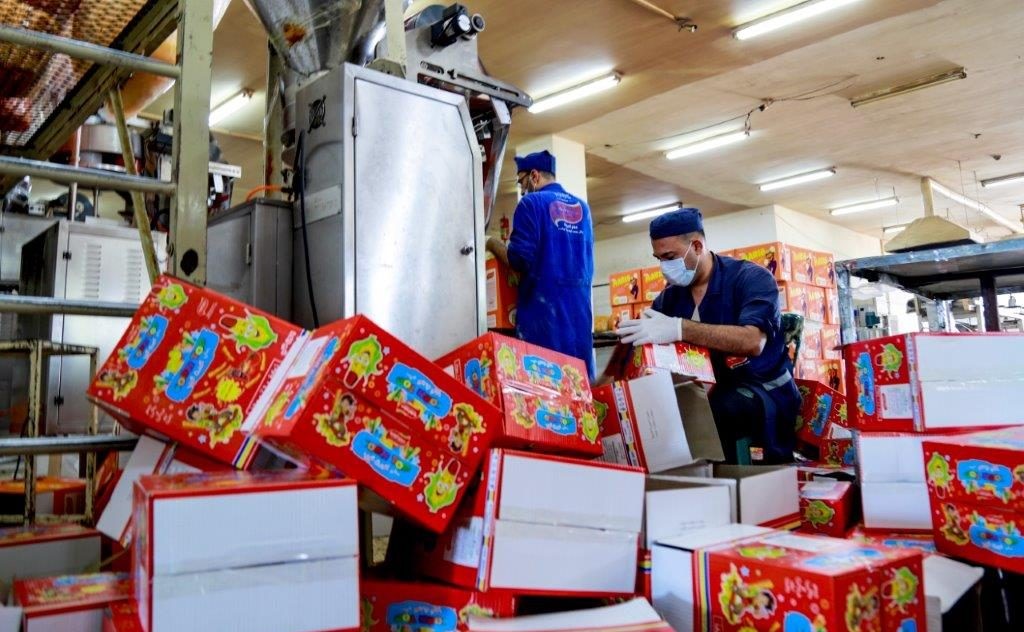While countries across the globe grapple with the severe economic repercussions of measures taken to curb the spread of the COVID-19 pandemic, Gaza’s economy has, for years, teetered on the brink of collapse, primarily as a result of the closure imposed by Israel since 2007.
Gisha – TheLegal Center for Freedom of Movement, an Israeli NGO, has written:”It is crucial, now more than ever, that Israel remove restrictions hindering Gaza’s economy, focusing especially on the sectors that provide food for the local civilian population and that could provide a source of income for thousands of people: The fishing and farming sectors, and the processed foods industry.”
On Thursday, April 2, Gisha Executive Director Tania Hary and Board Chair Professor Kenneth Man sent an urgent letter to Israel’s Defense Minister Naftali Bennett and the Coordinator of Government Activities in the Territories (COGAT) Major General Kamil Abu Rukun, demanding they take immediate action to protect food security and promote economic activity in the Strip as the COVID-19 pandemic continues to spread. The two were asked to remove ongoing restrictions imposed by Israel on the entry of so-called “dual-use” equipment and materials for which there is an acute need in Gaza’s farming and fishing sectors, and to allow the exit of Gaza-made food products for sale in the West Bank.
The farming branch is a critical source of both employment and food supply in the Strip. For years, farmers in Gaza have sought to coordinate the entry of fertilizers and agricultural disinfectants that could increase their yield by as much as 25 percent, improve the quality of crops, extend their shelf life, and boost profitability. Israel prevents these materials from entering Gaza in the required quantities. In July 2019, media reports suggested that Israel had decided to relax restrictions on the entry into Gaza of items it defines as “dual-use,” because of their possible use in the production of armaments, including the much-needed fertilizers and disinfectants for farming. Nonetheless, Israel continues to deny Gaza access to these essential materials.
The fishing sector, another major source of livelihood and supplier of food for Gaza’s residents, has suffered for years under limitations Israel enforces in Gaza’s sea space, as well as restrictions it imposes on the entry of “dual-use” equipment and materials needed for repair and maintenance of fishing boats, which have left many boats out of commission. According to Gaza Fishermen’s Union, Israeli authorities are well aware of the acute need for fiberglass, steel cables, boat engines and spare parts. Still, applications made by suppliers to coordinate the entry of these products have been delayed or received no response.
Before the closure was imposed in 2007, 80 percent of the industrial processed foods produced in Gaza were sold outside the Strip, mostly in the West Bank and Israel. The Food Industry Association and business owners from the sector have long emphasized the need to market their products in the West Bank. For more than two years, Gisha has campaigned for Israel to allow the sale of processed foods outside Gaza. However, despite assurances made by Israeli authorities to resolve this issue in response to a High Court petition submitted by Gisha, no progress has been made. Professional experts in the Strip believe that restoring the possibility of marketing products in the West Bank would increase employment and mitigate the impact of the emergent economic crisis.
On Thursday, April 2, Irish Sinn Fein Member of the Legislative Assembly (MLA), Declan Kearney, denounced the ongoing Israeli blockade on the Gaza Strip and its occupation of the West Bank as the Palestinian Authority battles the spread of the coronavirus pandemic, COVID-19.
“It is an international scandal that the Palestinian people must simultaneously struggle against the unjust Israeli blockade of Gaza and occupation of the West Bank while also battling against the spread of COVID-19,” he told the Palestinian ambassador in Ireland, Jilan Wahba.
Kearney said that the ambassador briefed him on the situation in the Palestinian territories because of the spread of COVID-19, expressing particular concern for the health and wellbeing of over 5,000 political prisoners being held in Israeli prisons due to an outbreak of COVID-19 among prison staff and the removal of cleaning products from prison canteens. The Palestinians ambassador urged “The international community to intensify pressure upon the Israeli government to meet its international obligations and protect the health of the prisoners which it detains” Kearney said. “I am now calling on the Irish government to use its influence to address this humanitarian priority,” said the Irish MLA.
Download the full letter sent by Gisha to Israel’s defense minister and the head of COGAT (English)



